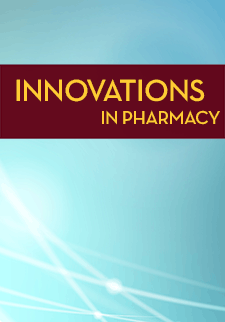Examining the Effect of a Medication Synchronization or an Education Program on Health Outcomes of Hypertensive Patients in a Community Pharmacy Setting
Kristen L. DiDonato
Kristin R. Vetter
Yifei Liu
Justin R. May
D. Matthew Hartwig
DOI: https://doi.org/10.24926/iip.v5i3.357
Keywords: hypertension, community pharmacy, adherence, education, medication synchronization
Abstract
Objective: To examine the effect of a medication synchronization or education program on hypertensive health outcomes.
Methods: This study used a design of randomized controlled trial lasting four months taking place within a family-owned community pharmacy chain in a U.S. Midwestern state. A total of 302 hypertensive patients were randomized into 3 study groups - control, medication synchronization, and education. Interventions included management of medication refills through a medication synchronization program for the medication synchronization group, and monthly hypertension (HTN) education for the education group. Outcome measures included systolic blood pressure (SBP), diastolic blood pressure (DBP), percentage of patients at blood pressure (BP) goal, self-rated change in medication adherence, and patients' HTN knowledge.
Results: All groups had significant decline of SBP from baseline; however the final analysis showed no significant SBP differences among study groups. The proportion of patients achieving BP goals in both the control (p=0.005) and education (p=0.019) groups increased at Month 4. Changes in self-reported adherence were not significant for any groups. All groups showed positive changes on HTN knowledge questions with the education group showing the greatest change.
Conclusion: Compared to the control group, there was no difference in the primary outcomes. However, this study demonstrated that educational materials written at an appropriate level and presented by community pharmacists to patients may have been associated with an increase in HTN knowledge and a significant increase in the proportion of patients achieving their BP goal. These educational interventions had a greater impact on helping patients achieve their blood pressure goals than medication synchronization. This may indicate that further intervention is needed to impact adherence aside from ensuring that patients have their medication on hand. Taking the time to educate patients about hypertension led to self-reported positive change with being more careful about taking medications and with not forgetting to take medications when they felt better.
Type: Original Research


